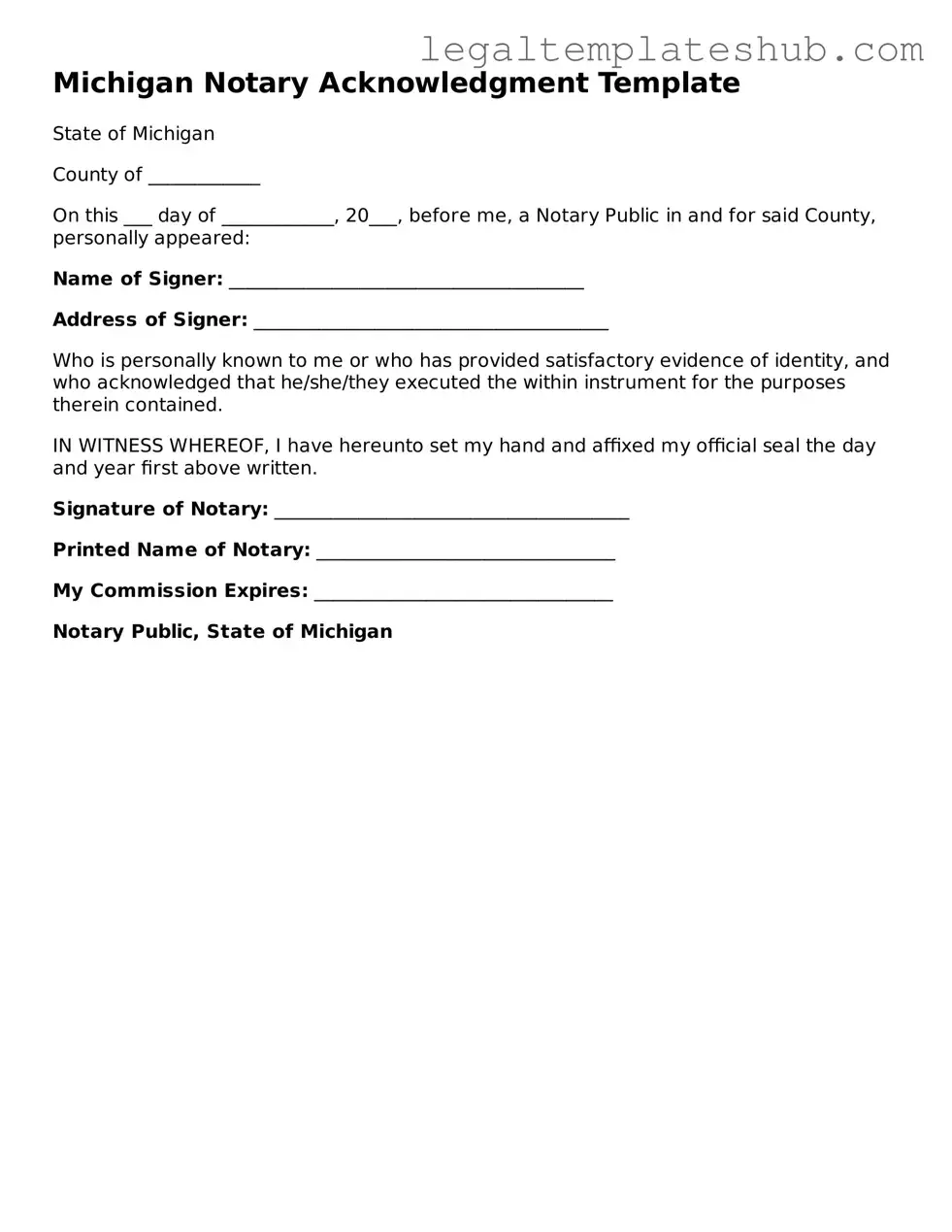Printable Notary Acknowledgement Document for Michigan
The Michigan Notary Acknowledgement form is a legal document that verifies the identity of a signer and their willingness to sign a specific document. This form serves as proof that the notary public has witnessed the signing process, ensuring that the transaction is legitimate and binding. To learn more and fill out the form, click the button below.
Access Editor
